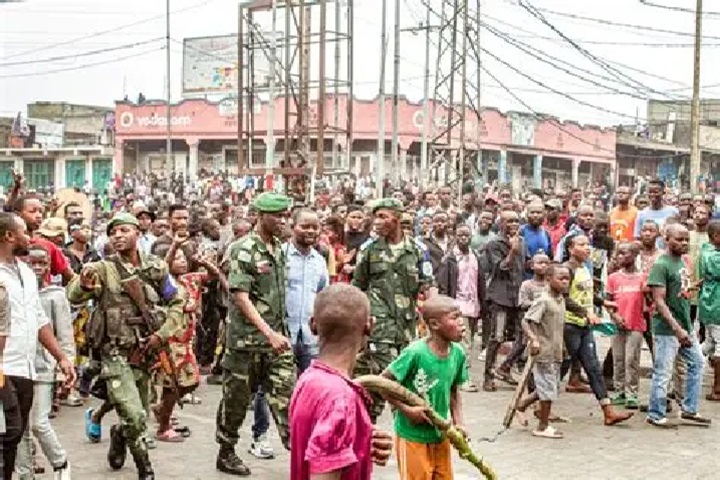Leaders from the Democratic Republic of Congo (DRC) and Rwanda sealed a landmark peace deal Friday in Washington, signaling hope after years of devastating conflict.
The White House ceremony, mediated by U.S. and Qatari officials, brought together foreign ministers from both nations to sign the breakthrough agreement.
Clashes between Congolese troops and M23 rebels backed by Rwanda recently intensified, forcing thousands to flee eastern Congo’s resource-rich areas.
As violence escalated without pause, civilians endured terrifying conditions; therefore, entire communities fled in desperation as shelling devastated their homes.
During the emotional accord, Rwanda’s Foreign Minister Olivier Nduhungirehe called it historic and voiced optimism for regional harmony and peace.
Immediately following his remarks, Congolese Foreign Minister Therese Kayikwamba Wagner demanded rebel withdrawal and swift justice for the countless victims.
Moreover, all stakeholders must urgently coordinate to ensure the displaced population’s secure return and begin meaningful peacebuilding across affected territories.
U.S. Secretary of State Marco Rubio led negotiations, hosting both sides, and praised the outcome as a diplomatic milestone regionally.
He emphasized that, although three decades of bloodshed have left deep wounds, this agreement opens a hopeful new regional chapter.
Tensions between Rwanda and Congo stem from Rwanda’s 1994 genocide, which spilled violence into the neighboring country.
Rebel factions like M23 exploited this chaos, claiming to defend ethnic Tutsis and profiting from illegal mining activities.
Additionally, these groups terrorized civilians, further destabilizing the region and complicating peace efforts for both nations.
United Nations chief António Guterres cautiously welcomed the agreement, stressing implementation over promises. Qatar’s foreign minister, Sheikh Mohammed bin Abdulrahman Al-Thani, echoed this, calling diplomacy “the only path to lasting peace.”
Yet experts remain wary. “Paper agreements won’t stop bullets without concrete follow-through,” warned Central Africa analyst Dr. Anneke van Woudenberg. Past accords collapsed when armed groups ignored terms and foreign meddling continued unchecked.
Humanitarian crises compound the challenges. UNHCR reports 600,000 displaced this year alone, many stranded in squalid camps lacking food and medicine. The deal pledges to address root causes—ethnic strife, poverty, and weak governance—but survivors await proof.
As ink dries on the document, millions watch anxiously. Will this handshake finally silence the guns, or become another broken promise in Congo’s tragic history? The answer now lies with leaders’ willingness to turn words into action.







